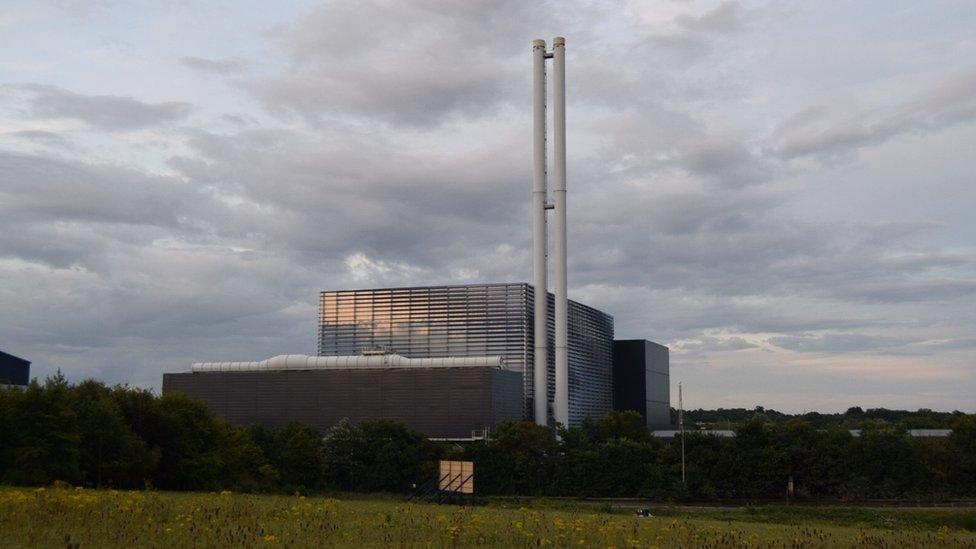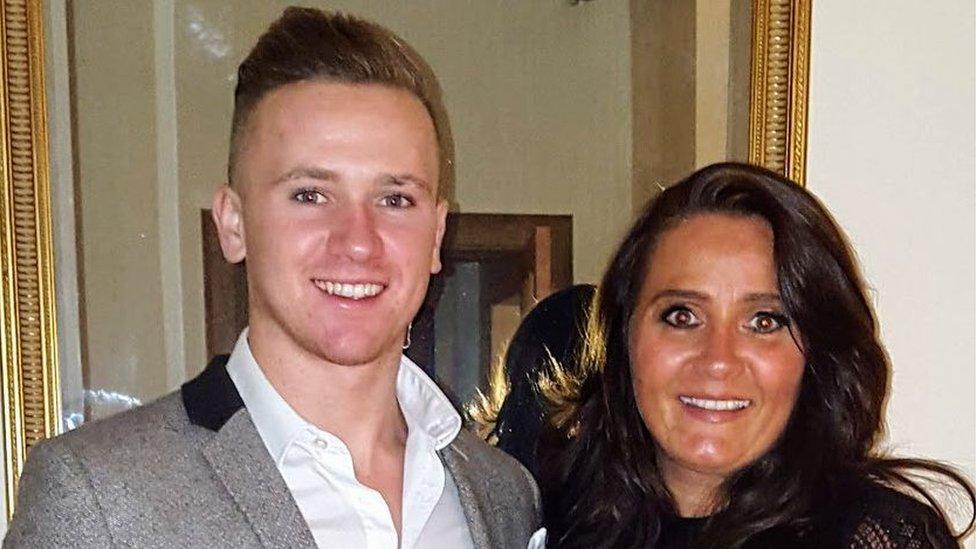Corrie Mckeague search: Examined burnt waste 'not human bones'
- Published

Police searched a landfill site for missing Corrie Mckeague for 20 weeks
Police investigating the disappearance of missing RAF airman Corrie Mckeague say material found at an incinerator plant "did not contain human bones".
The 23-year-old was last seen alive on a night out in Bury St Edmunds, Suffolk, on 24 September.
Police searched the incinerator at Great Blakenham, near Ipswich, after a 20-week probe of a landfill site ended.
Specialist officers from the East Midlands are to review Suffolk Constabulary's investigation to date.
The tortuous search for Corrie Mckeague
A force spokesman said: "Suffolk Police has engaged experts to examine incinerated waste gathered from the Great Blakenham energy-from-waste facility and it has been confirmed that this matter does not contain human bone material."
He said the East Midlands Special Operations Unit's review would assess whether there were any other lines of inquiry which need to be pursued.

Waste from the Great Blakenham incinerator was found not to contain human bones
The team consists of specialist officers and staff from forces in Derbyshire, Leicestershire, Lincolnshire, Northamptonshire and Nottinghamshire.
Suffolk Police said it would no longer have an operational presence at the landfill site at Milton, near Cambridge, but clarified that no more rubbish would be added to the search area until the review had been completed.
Mr Mckeague, from Fife, was last seen entering a bin loading bay in the Suffolk town.
Suffolk Police said he was known to "sleep in rubbish on a night out".
- Published1 August 2017

- Published21 July 2017

- Published24 July 2017

- Published5 June 2017

- Published21 July 2017
